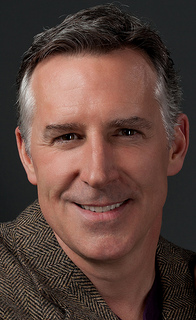Oral Cancer Facts and Figures
April 17th, 2018

Oral cancer is largely viewed as a disease that affects those over the age of 40, but it can affect all ages, even non-tobacco and alcohol users. Oral cancer can occur on the lips, gums, tongue, inside lining of the cheeks, roof of the mouth, and the floor of the mouth. Our team at Gary Yanowitz, DDS recently put together some facts and figures to illustrate the importance of visiting our Pembroke Pines, FL office.
Our friends at the American Cancer Society recommend an oral cancer screening exam every three years for people over the age of 20 and annually for those over age 40. Because early detection can improve the chance of successful treatment, be sure to ask Dr. Gary Yanowitz and our team to conduct an oral exam during your next visit to our Pembroke Pines, FL office.
- Symptoms of oral cancer may include a sore in the throat or mouth that bleeds easily and does not heal, a red or white patch that persists, a lump or thickening, ear pain, a neck mass, or coughing up blood. Difficulties in chewing, swallowing, or moving the tongue or jaws are often late symptoms.
- The primary risk factors for oral cancer in American men and women are tobacco (including smokeless tobacco) and alcohol use. Risk rises dramatically (30%) for people who both smoke and consume alcohol regularly.
- Oral cancers are part of a group of cancers commonly referred to as head and neck cancers, and of all head and neck cancers they comprise about 85% of that category.
- Oral cancer is the sixth most common cancer among men.
- Oral cancer is more likely to affect people over 40 years of age, though an increasing number of young people are developing the condition.
- Death rates have been decreasing over the past three decades; from 2004 to 2008, rates decreased by 1.2% per year in men and by 2.2% per year in women, according to the American Cancer Society.
- About 75% to 80% of people with oral cavity and pharynx cancer consume alcohol.
- The risk of developing oral cavity and pharynx cancers increases both with the amount as well as the length of time tobacco and alcohol products are used.
- For all stages combined, about 84% of people with oral cancer survive one year after diagnosis. The five- and ten-year relative survival rates are 61% and 50%, respectively.
- It is estimated that approximately $3.2 billion is spent in the United States annually on treatment of head and neck cancers.
Cancer can affect any part of the oral cavity, including the lip, tongue, mouth, and throat. Through visual inspection, Dr. Gary Yanowitz and our team at Gary Yanowitz, DDS can often detect premalignant abnormalities and cancer at an early stage, when treatment is both less extensive and more successful.
Please let us now if you have any questions about your oral health either during your next scheduled appointment, by giving us a call or asking us on Facebook.



